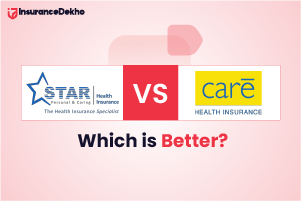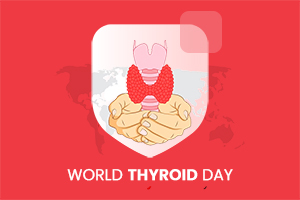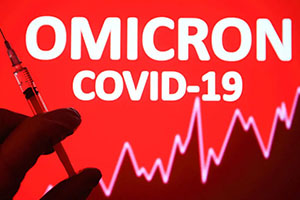

- Tax BenefitUp to 75000**
- Claim SupportEveryday 10AM-7PM
- 45 Lacs+Happy Customers
*Standard Terms and Conditions Apply.
**Tax benefits are subject to changes in Income Tax Act.
Deafness is a complete and irreversible loss of hearing a sound. It can occur at any age due to an illness or an accident. Its diagnosis must be supported by audiometric and sound-threshold tests provided and certified by an ENT (Ear, Nose, Throat) specialist. Deafness can be partial or total wherein total means the loss of at least 80 decibels in all frequencies on hearing.
Deafness
Causes of Deafness
There can be many causes of partial or total deafness. One may suddenly go deaf due to some complication of a virus, nerve damage, injury caused by noise, or may lose hearing power over time due to disease. Others are mentioned below:
- Fluid build-up behind eardrum
- Holes in the eardrum
- Problems with middle ear bones
- Tumours
- Birth defects
- Diseases passed on by genes
- Exposure to loud noise in certain occupations
- Exposure to excess noise in a concert, night club, etc.
- Use of headphones, household power tools,
- Infectious diseases like shingles, cytomegalovirus, and meningitis
Symptoms of Deafness
Deafness is easy to identify as the affected person will see a major change in hearing. If the hearing loss is mild, then it may not be noticed right away as it develops gradually and people get used to it. If someone notices difficulty in understanding conversations, or has to turn the volume of the television radio up, or has to ask people to repeat what they say, then he/she may be suffering from hearing loss. Other symptoms of deafness can be:
- Difficulty in understanding words especially at a place with noisy background
- Trouble listening to consonants
- Withdrawal from conversations
- Muffling of speech and other sounds
Prevention of Deafness
Listed below are a few steps that can help prevent noise-induced or age-related hearing loss.
- Protect your ears: It is advised to limit your duration and intensity of exposure to noise in order to protect your ears. Wear glycerin-filled earmuffs or plastic earplugs at work as they protect your ears from damage.
- Get your ears tested: Visit the doctor regularly for a test in case you work in a noisy environment. If you have already lost some hearing, you can still take measures to prevent further damage.
- Avoid recreational risks: Activities like hunting, attending rock concerts, constantly listening to loud music can damage your hearing with time. Therefore, you must avoid being involved in such activities. or you can wear hearing protectors, take breaks from the noise to ensure protection, or turn the music volume down.
Treatment of Deafness
Deafness and conductive hearing loss may sometimes be treatable by removing the cause of the blockage. For instance, fluid in the middle year or wax in the ear canal can be removed. However, problems with hearing bones (known as otosclerosis) require surgery.
If even the hearing aid does not prove to be useful for a person, then he/she may consult the doctor for a cochlear implant in which very thin wires are implanted in the inner ear. The wires connect the auditory nerve with a device that converts sound into electrical impulses. It stimulates the auditory nerve with a divide that converts the sound into electrical impulses. The auditory nerve then gets stimulated which helps the brain receive impulses. Many people are able to understand the words without lip-reading with the help of multi-cochlear implants. They are able to understand speech over the telephone as well.
Other tools that help in hearing include light alerting systems (they flash when the doorbell rings), telephone communication tools etc.
People with deafness take the help of sign language or lip-read to understand the words. Infants and elder people can be benefited with training that they should take as soon as the illness is identified. The training for sign language includes speech therapy as well as speech therapy.
Health Insurance Plans for Deafness
Understanding the seriousness of the illness, health insurance companies in India have now begun launching affordable critical illness insurance that covers deafness. Some popular health insurance policies that cover deafness include Health Optima Vital plan offered by HDFC Ergo Health (formerly Apollo Munich) and the Criticare plan offered by Max Bupa. Both the insurers have impressive Claim Settlement Ratios and offer reliable health insurance solutions for deafness keeping the customers at ease at all times.
Why Choose InsuranceDekho for an Insurance Policy for Deafness
InsuranceDekho offers affordable health insurance policies for deafness that offer wide coverage to the insured. At InsuranceDekho, you will find it very simple to buy health insurance policies that cover critical illnesses like deafness. Other benefits of buying health insurance at InsuranceDekho include:
- Multiple health insurance quotes for deafness
- Post policy purchase assistance
- Expert help at the time of purchasing a policy
- Online premium calculator available to get an estimate of health insurance premium
- Assistance during filing a claim settlement
Health Insurance Calculator
Whom do you want the insurance for ?
Where do you live ?
Choose required Coverage for yourself?
Health Insurance Coverage Calculator
Who do you want to insured ?
- Individual
- Couple
- Family
- Parents
Age of eldest insured member ?
Where do you live ?

*Tax benefits are subject to changes in Income Tax Act.















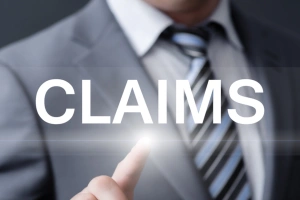





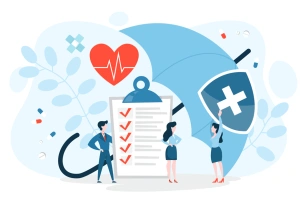

.jpg)





























